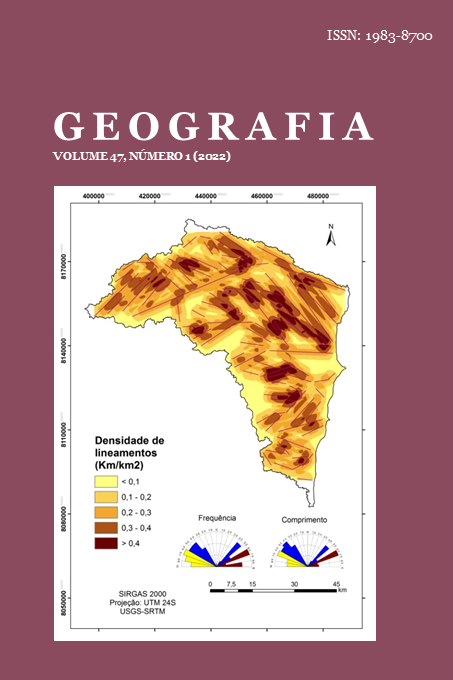FUNCTIONS OF THE SMALL URBAN CENTERS IN THE BRAZILIAN URBAN NETWORK AND IMPLICATIONS FOR URBAN-TERRITORIAL PLANNING AND MANAGEMENT POLICIES
DOI:
https://doi.org/10.5016/geografia.v47i1.16343Abstract
This study focuses on urban centers with up to twenty thousand inhabitants, which account for 70% of Brazilian urban centers. It is assumed that these centers need to be considered by urban policy, especially if we take into account the regional and national urban network. The study also aims at verifying the functions of these small cities in the contemporary Brazilian urban network, corroborating Roberto Lobato Corrêa's discussion on the possibilities of "repurposing" against globalization processes. Therefore, statistical data available in recent publications by the IBGE and the Rede Observatório das Metrópoles are used. Based on this investigation, implications for urban-territorial planning and management policies that focus on small-population municipalities can be surmised. It is concluded that the predominant function of urban centers with up to twenty thousand inhabitants is the local management of the vast and diverse Brazilian territory and, once inserted in a predominantly vertical urban network, their municipalities need an urban–territorial planning that goes beyond the municipal scope.
Downloads
Published
Issue
Section
License
The authors maintain the copyright and grant GEOGRAFIA the right of first publication, with the articles simultaneously licensed under the Creative Commons BY 4.0 License, which allows sharing and adapting the articles for any purpose, as long as appropriate credits and provisions of image rights, privacy or moral rights. Other legal attributions can be accessed at: https://creativecommons.org/licenses/by/4.0/legalcode.en.
Geography, Rio Claro, SP, Brazil - eISSN 1983-8700 is licensed under the Creative Commons BY 4.0 License.





